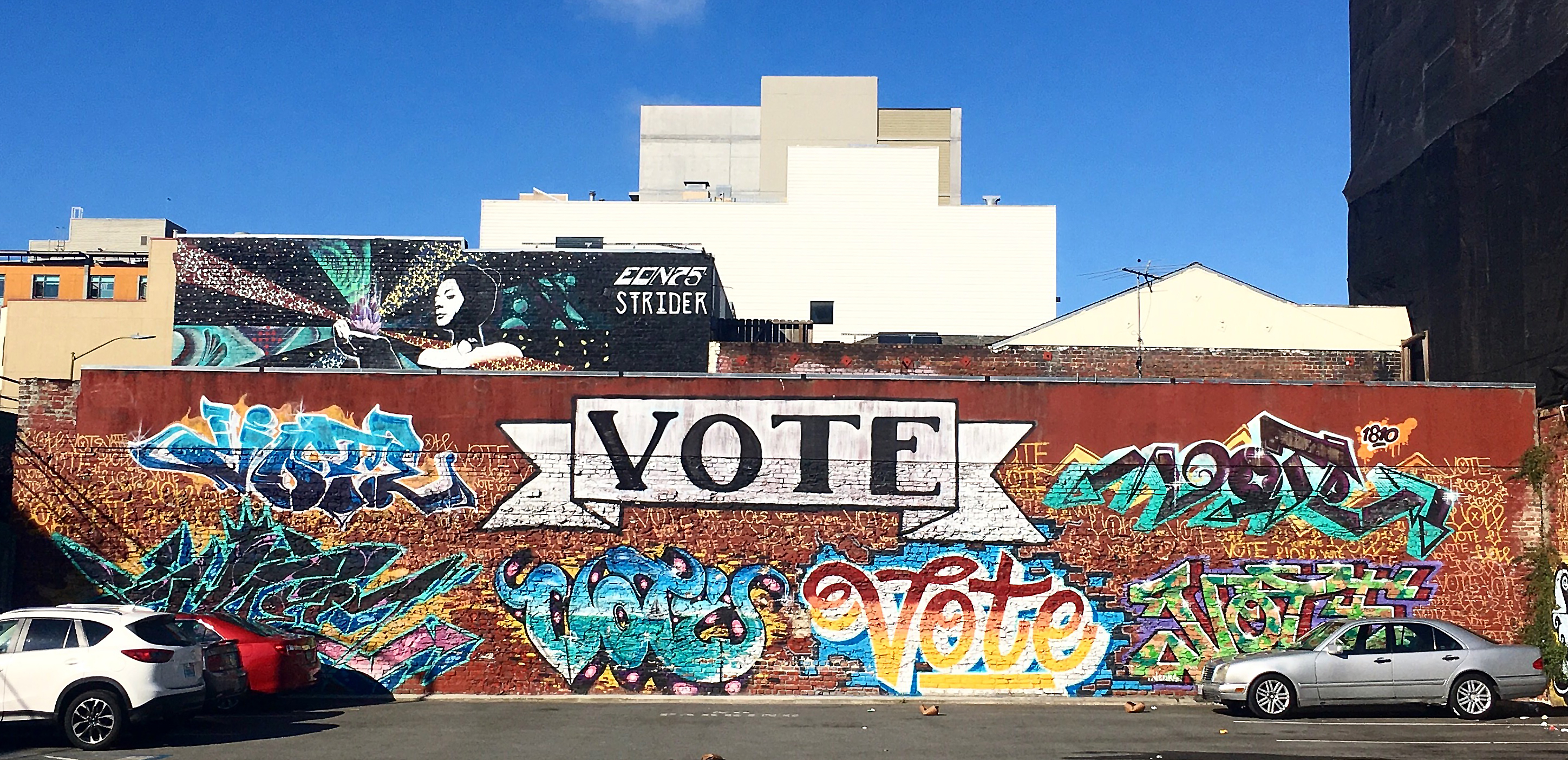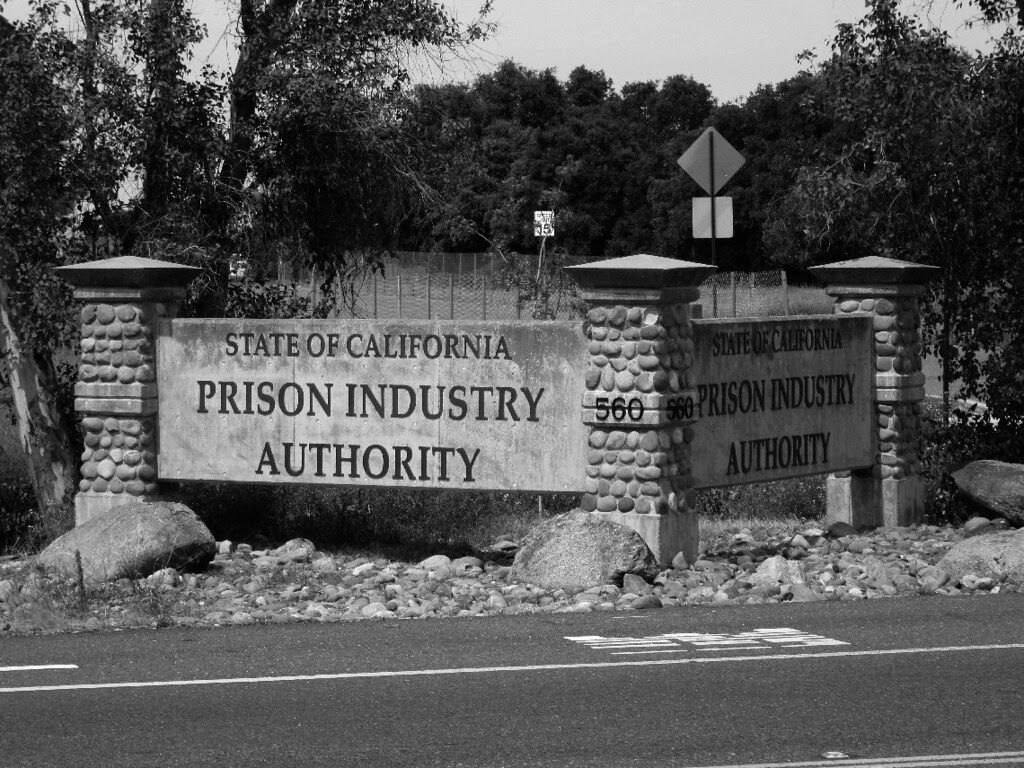Voter suppression has been an issue since various minority groups were granted the right to vote, and the 2018 midterm elections were no exception. However, the stakes were arguably higher than ever this year. This election followed a recent report released by the United Nations that warned that humans have just 10 years until irreversible and catastrophic climate change sets in–unless we take drastic, evidence-based measures.[1] Those elected to office have the choice to support or ignore those measures.
In addition to the environment, reproductive rights, economic inequality, racism, gun control, and countless other issues are especially at stake, given the new addition of conservative Justice Brett Kavanaugh to the Supreme Court, as well as increasingly xenophobic rhetoric from the White House.[2]
Voter suppression, especially as perpetuated by Republicans, is not a new phenomenon. Historically, people of color tend to vote overwhelmingly for Democrats, incentivizing Republicans to prevent them from voting.[3] The outright intimidation and violence of the Jim Crow era was just the beginning, with practices such as disenfranchisement of ex-offenders, voter ID laws, and inaccessible polling locations employed as more subtle means of achieving the same goal years later.
One of the latest tactics in a long history of voter suppression is the restriction, and in some states complete elimination, of voting rights for ex-offenders. People of color, especially men of color, are disproportionately likely to be incarcerated or have a history of incarceration, so they are most affected by these laws. This increased likelihood of incarceration is due to policies of mass incarceration: mandatory minimums, the cycle of poverty, and the school-to-prison pipeline.[4] More than 6 million people across the country have lost their right to vote due to their criminal records.[5]
One of the most important referendums on the ballot anywhere in the country this November was Amendment 4 in Florida, which passed with a 64% majority.[6] This referendum re-enfranchised 1.5 million felons who have completed their sentences, and who made up roughly 25% of disenfranchised formerly incarcerated Americans.[7] Florida has restricted more ex-felons from voting than any state in America.[8] The caveat to this referendum is that those convicted of murder or sex offenses would not have their right to vote restored. However, all other ex-felons had their right to vote restored immediately upon passage of the referendum. The passage of Amendment 4 resulted in the re-enfranchisement of the most people in a single initiative since women gained the right to vote.[9]
While the majority of Florida’s formerly incarcerated population is white, black ex-offenders were disproportionately affected by the legislation. One in 5 black voters in Florida were unable to cast their ballot in the November 2018 elections due to former felony convictions, and 1 in 10 black voters in Florida overall could not vote due to these exclusionary laws.[10]
Florida has historically been a swing state, and the restoration of the voting rights of 1.5 million people could have the potential to result in future Democratic victories in the state. It is not definitively known whether the passage of Amendment 4 will make Florida a blue state, which could influence electoral college math in the 2020 presidential election. However, a study conducted by sociologists in 2002 suggested that if felons had been allowed to vote in the 2000 presidential election, Al Gore would have won Florida, and therefore would have won the presidency.[11] While it is not known for certain how re-enfranchisement will influence Floridian politics, it was surely a common sense, as well as common justice measure to restore civil rights to those who have served their time for past offenses.
Another popular tactic among Republicans to prevent minority and low-income voters from casting their ballots is voter ID laws. Voter ID laws have been passed in some form in over 30 states, supposedly to prevent voter fraud.[12] Yet, a report by the Brennan Center for Justice estimates that voter fraud accounted for between 0.0003% and 0.0025% of votes in 2007–hardly enough to sway an election.[13] Voter ID laws disproportionately affect Black, Latinx, and low-income communities, as obtaining an ID can cost upwards of $75 in some states when taking into account travel expenses, lost wages, and fees.[14] It has been shown that 25% of African Americans of voting age lack appropriate ID, as compared to 8% of whites.[15] This puts African Americans at a disadvantage in states with strict voter ID laws.
Voter ID laws were passed in a frenzy by Republican-controlled state legislatures after President Obama was elected, and prominent Republicans have admitted that voter ID laws are designed to limit Democratic voters.[16] A Republican legislator from Pennsylvania said in 2012 that the state’s voter ID law would “allow Governor Romney to win the state of Pennsylvania.”[17]
Voter ID laws have been at the forefront of national debate for years, but the issue became more pressing in light of the consequential November 6th election. In April 2018, the state legislature of North Dakota passed a law that requires voters to have an ID with a street address, disqualifying those who have P.O. Boxes.[18] This disproportionately affects the Native American population in North Dakota, which totals about 10% of the total population of the state.[19] Native Americans predominantly live on reservations, which do not have physical street addresses. Instead, many Native Americans use P.O. boxes as their addresses for ID and other legal documents. Furthermore, Native Americans are overrepresented in North Dakota’s homeless population, leaving a large portion without street addresses for their IDs.[20]
The law was challenged and the case was brought before the Supreme Court, which ruled in mid-October 2018 to uphold the law.[21] With less than one month before the midterm elections, thousands of Native Americans had to rush to obtain updated ID and physical street addresses if they intended to vote. This law was passed by a Republican-controlled state legislature, likely to limit the voting rights of Native Americans, who tend to vote for Democrats.[22] It is important to note that North Dakota’s Senate race was hotly contested and closely watched this year–resulting in the victory of Republican Kevin Kramer, who was “personally recruited by President Donald Trump to take on vulnerable Democratic incumbent Heidi Heitkamp.”[23][24]
The purging of voter rolls and the elimination of monitoring under the Voting Rights Act (VRA) also contribute to limiting the power of voters of color. The purging of voter rolls can play a major part in deciding elections, just as it did in 2000. George W. Bush was declared the winner in Florida by the Supreme Court by a narrow margin of 537 votes, but it was later discovered that over 12,000 voters had been purged from the rolls because their names resembled those of convicted felons.[25] Years later, in 2013, a vital portion of the VRA was struck down by the Supreme Court, which mandated that counties with histories of discrimination must have their election rules and practices routinely monitored by the Justice Department. A recent study showed that in 381 counties that were formerly monitored for past civil rights abuses, 868 polling locations have closed since part of the VRA was struck down.[26]
In Georgia’s 2018 gubernatorial election, voter suppression continues to be a hot topic. Democrat Stacey Abrams challenged Republican Brian Kemp, current Georgia Secretary of State. Secretaries of state are in charge of presiding over state elections and enforcing the state’s election rules. Many Democrats called for Kemp to resign from his position as Georgia’s Secretary of State, seeing as he essentially oversaw his own race for governor, and did not relinquish his position.[27] A source of criticism, 53,000 new voter registrations were suspended by Kemp’s office, 70% of which were for African Americans.[28] This was due to a law that was passed in 2017, at Kemp’s behest, that requires an exact match between a voter’s name and information to their identification. This means that if a hyphen or single letter is different between the name on the voter registration and the voter’s ID, the registration can be suspended and is subject to review by Kemp’s office.
All 53,000 Georgians were sent letters by the Secretary of State’s office stating that their voter registration was on hold. This, according to Abram’s campaign, led to confusion among voters and may have caused many of the 53,000 voters to sit out this election. All of these “suspended” voters would have been able to vote with proper ID; however this was not made clear in the letter sent out by Mr. Kemp’s office.[29] This confusion was expected to especially affect turnout for rural voters, many of whom may not have received word that they were eligible to vote in November.
According to a report by the Brennan Center for Justice, Georgia removed 1.5 million voter registrations from the rolls between 2012 and 2016.[30] This study also suggests that the practice of removing deceased voters from the rolls has resulted in the purging of active voters.[31] A lawsuit filed in October found that in one electorally important and liberal-leaning Georgia county, Kemp’s office rejected 8.5% of absentee ballots, as compared to 2% rejected statewide.[32]
Additionally, over 200 voter precincts have closed in Georgia since 2012, during Mr. Kemp’s tenure.[33] This increased the strain on rural voters, as well as confusion for newly registered voters. Fewer polling places also creates further difficulty for low-income voters who are unable to travel long distances to vote.
Several lawsuits were filed against Secretary of State Kemp and his office’s voter suppression tactics, but the outcomes of these lawsuits are unclear at the time of writing (November 7th). Regardless, the blatant efforts made by Kemp and his campaign to prevent voters from having their voices heard in their election is indefensible. These tactics are not only prevalent in Georgia, but in other states throughout the country, especially ones with Republican controlled legislatures and Secretaries of State.[34]
Despite Republican efforts to deter voting, Democrats managed to regain control of the House of Representatives in the 2018 midterms, instilling checks and balances over a formerly entirely Republican-controlled Congress and executive branch.[35] Another victory lies in the aforementioned passage of Amendment 4 in Florida.[36] Yet, the effects of deeping partisanship and voter suppression were still felt, such as Heidi Heitkamp’s defeat by Representative Kramer, which many contribute in part to the passage of the state’s new voter ID law. Heitkamp won her last election in 2012 by the narrow margin of 3,000 votes, and a strong base of her support came from Native Americans in the state.[37]
Stacey Abrams’ bid to become the nation’s first black female governor is still uncertain at the time of writing, as the margin of Kemp’s current vote share is only 50.8%, according to the Associated Press.[38] In Georgia, if one candidate does not have at least 50% of the vote, an automatic runoff is triggered. Both the Kemp and the Abrams campaigns acknowledge that there are still absentee, provisional, and early ballots to be counted, meaning the results of that contest are still to be determined.[39] The Abrams campaign estimates there are still 97,000 ballots to be counted, according to their internal tracking, and Abrams needs only 25,000 votes to trigger a runoff.[40] However, there have been reports of voting indiscrepancies coming from all over Georgia, including lines at polling places stretching for over 4 hours, and voting machines that ran out of battery because they were not provided with power cords. Several precincts were court ordered to extend their hours on election day due to the instability and chaos.[41] If Abrams receives enough votes in order to trigger a runoff election, it would be held on December 4th.[42]
Many hoped that the 2018 midterm elections would be a major turning point for political leadership in the United States. However, the blue wave that was highly desired and anticipated by many was diminished by the myriad of voter suppression tactics employed by Republicans nationwide. These tactics mainly targeted people of color and low-income voters who tend to vote Democrat. This blatant disregard for civil rights violates the very character of our Constitution, and has the potential to influence elections for years to come. These elections were consequential not only in determining who will control Congress or the White House, but also indicative of how much honesty and justice is valued in our political processes. Republicans continue to try to restrict the rights of their opposition; it is up to the public to become aware of these issues and pressure our newly elected leaders to address them, especially with the 2020 presidential election just around the corner.
[1] “Climate Change.” The United Nations. Accessed November 01, 2018. http://www.un.org/en/sections/issues-depth/climate-change/
[2] Davis, Julie Hirschfeld. “President Wants to Use Executive Order to End Birthright Citizenship.” The New York Times. October 30, 2018. https://www.nytimes.com/2018/10/30/us/politics/trump-birthright-citizenship.html
[3] Frey, William. “Will minority and female turnout surges seal Democratic midterm victories?” The Brookings Institute. October 31, 2018. https://www.brookings.edu/research/will-minority-and-female-turnout-surges-seal-democratic-midterm-victories/
[4] Wagner, Peter and Wendy Sawyer. “Mass Incarceration: The Whole Pie 2018.” The Prison Policy Initiative. March 14, 2018. https://www.prisonpolicy.org/reports/pie2018.html
[5] Bazelon, Emily. “Will Florida’s Ex-Felons Finally Regain the Right to Vote?” The New York Times. September 26, 2018. https://www.nytimes.com/2018/09/26/magazine/ex-felons-voting-rights-florida.html
[6] Mak, Tim. “Over 1 Million Florida Felons Win Right To Vote With Amendment 4.” The National Public Radio. November 07, 2018.
[7] Bazelon, Emily. “Will Florida’s Ex-Felons Finally Regain the Right to Vote?”
[8] Gross, Samantha J and Elizabeth Koh. “What is Amendment 4 on Florida ballot? It affects restoration of felons’ voting rights” The Miami Herald. October 05, 2018. https://www.miamiherald.com/news/politics-government/election/article219547680.html
[9] Bazelon, Emily. “Will Florida’s Ex-Felons Finally Regain the Right to Vote?”
[10] Ibid.
[11] Uggen, Christopher, and Jeff Manza. “Democratic Contraction? Political Consequences of Felon Disenfranchisement in the United States.” American Sociological Review 67, no. 6: 777-803. http://www.jstor.org/stable/3088970. 2002.
[12] “Oppose Voter Id Legislation – Fact Sheet” The American Civil Liberties Union. May 2017. https://www.aclu.org/other/oppose-voter-id-legislation-fact-sheet
[13] Levitt, Justin. “The Truth About Voter Fraud.” The Brennan Center for Justice. November 09, 2007. https://www.brennancenter.org/analysis/resources-voter-fraud-claims
[14] “Oppose Voter Id Legislation – Fact Sheet” The American Civil Liberties Union.
[15] Ibid.
[16] Horwitz, Sari. “Getting a photo ID so you can vote is easy. Unless you’re poor, black, Latino or elderly.” The Washington Post. May 23, 2016.
[17] Hopkins, Dan. “What We Know About Voter ID Laws.” FiveThirtyEight. August 21, 2018..
https://fivethirtyeight.com/features/what-we-know-about-voter-id-laws/
[18] Domonoske, Camila. “Many Native IDs Won’t Be Accepted At North Dakota Polling Places” The National Public Radio. October 13, 2018.
[19] “Native American Population in North Dakota.” The North Dakota Census Office. December 2015. https://www.commerce.nd.gov/uploads/8/CensusNewsletterDec2015.pdf
[20] Domonoske, Camila. “Many Native IDs Won’t Be Accepted At North Dakota Polling Places” [21] Ibid.
[22] Ibid.
[23] Cauterucci, Christina. “Heitkamp’s Kavanaugh Vote Didn’t Cost Her the Election. But It Makes Her Loss Even More Painful.” Slate. November 07, 2018.
[24] Domonoske, Camila. “Many Native IDs Won’t Be Accepted At North Dakota Polling Places” [25] Bazelon, Emily. “Will Florida’s Ex-Felons Finally Regain the Right to Vote?”
[26] Inouye, Shin. “New Report Documents 868 Polling Place Closures in Former VRA Preclearance States.” The Leadership Conference on Civil and Human Rights. November 04, 2016.
[27] Herndon, Astead and Trip Gabriel. “Showdown in Georgia Governor’s Race Reflects a Larger Fight Over Voting Rights.” The New York Times. October 15, 2018. https://www.nytimes.com/2018/10/15/us/politics/georgia-abrams-kemp-voting.html
[28] Ibid.
[29] Ibid.
[30] Brater, Jonathan and Kevin Morris, Myrna Pérez, and Christopher Deluzio. “Purges: A Growing Threat to the Right to Vote.” The Brennan Center for Justice. 2018. Accessed November 01, 2018.
https://www.brennancenter.org/sites/default/files/publications/Purges_Growing_Threat_2018.pdf
[31] Herndon, Astead. “Georgia Voting Begins Amid Accusations of Voter Suppression.” The New York Times. October 19, 2018. https://www.nytimes.com/2018/10/19/us/politics/georgia-voter-suppression.html
[32] Ibid.
[33] Ibid.
[34] Herndon, Astead and Trip Gabriel. “Showdown in Georgia Governor’s Race Reflects a Larger Fight Over Voting Rights.”
[35] Stolberg, Sheryl Gay. “Two Years After Trump’s Victory, Voters Erect an Impediment to His Power.” The New York Times. November 06, 2018. https://www.nytimes.com/2018/11/06/us/politics/trump-house-senate.html?action=click&module=Spotlight&pgtype=Homepage
[36] The Associated Press. “Florida Passes Amendment to Restore Felons’ Voting Rights.” The New York Times. November 06, 2018. https://www.nytimes.com/aponline/2018/11/06/us/ap-us-election-2018-florida-felon-voting-rights.html
[37] Cauterucci, Christina. “Heitkamp’s Kavanaugh Vote Didn’t Cost Her the Election. But It Makes Her Loss Even More Painful.”
[38] The Associated Press. “AP EXPLAINS: A Georgia Governor’s Race, Still Going.” The New York Times. November 06, 2018. https://www.nytimes.com/aponline/2018/11/07/us/ap-us-election-2018-governor-georgia-analysis.html
[39] Ibid.
[40] Ibid.
[41] Graham, Renee. “Brian Kemp’s voter suppression in Georgia.” The Boston Globe. November 07, 2018. https://www.bostonglobe.com/opinion/2018/11/07/brian-kemp-voter-suppression-georgia/tcycVrH5m0pJ9SQC7XwiWP/story.html
[42] The Assosciated Press. “AP EXPLAINS: A Georgia Governor’s Race, Still Going.”



